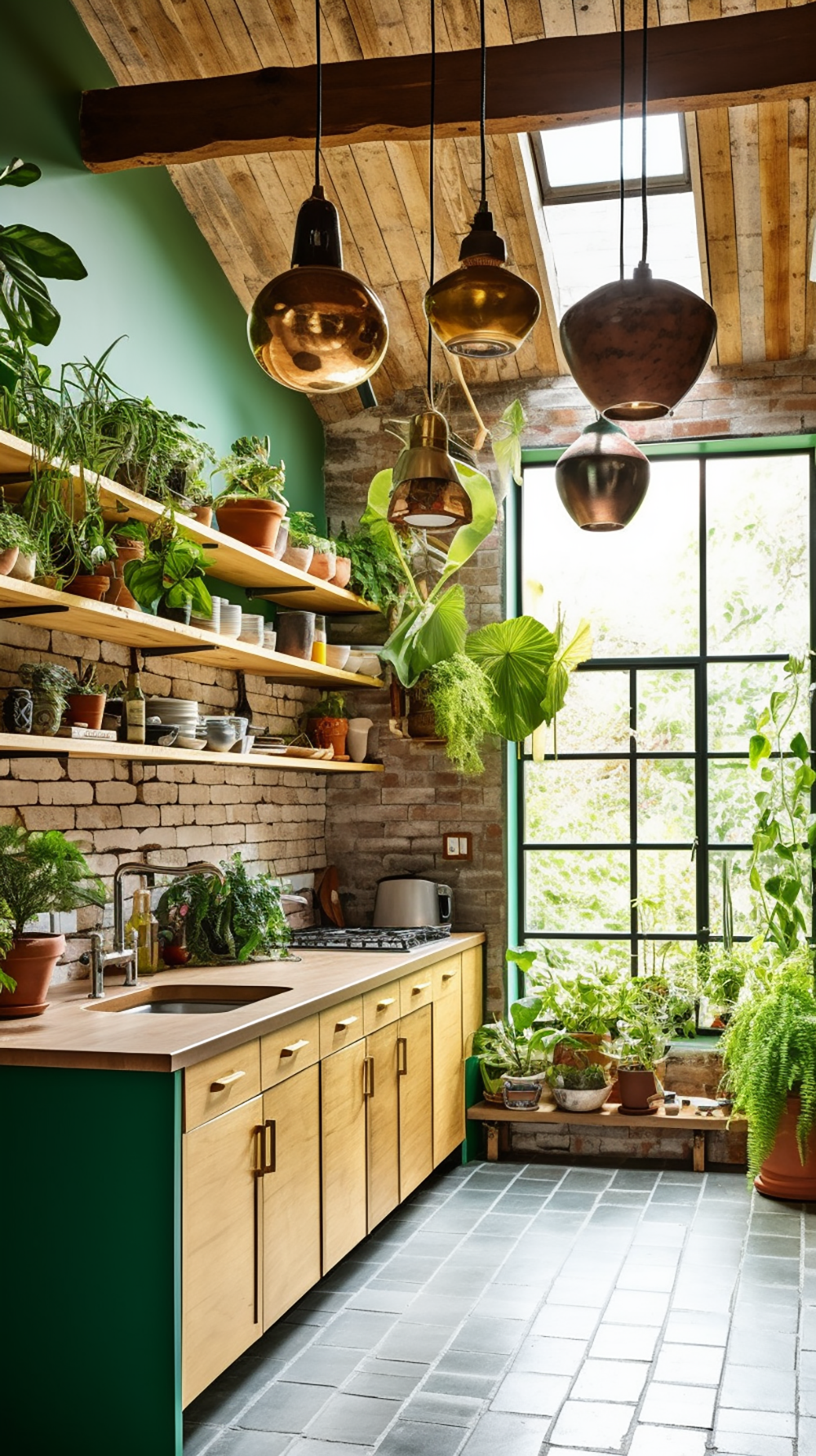
An eco-friendly kitchen is one that is designed and equipped with sustainable and environmentally friendly materials and practices. This can include using energy-efficient appliances, incorporating natural lighting and ventilation, utilizing recycled or upcycled materials for countertops and cabinets, and composting food waste. By using sustainable practices in the kitchen, such as reducing water waste, minimizing plastic usage, and choosing organic and locally sourced foods, homeowners can help reduce their carbon footprint and protect the environment. Additionally, eco-friendly kitchens can also have health benefits by reducing exposure to harmful chemicals and toxins found in conventional cleaning products and non-organic foods. Overall, creating an eco-friendly kitchen not only helps the environment, but also promotes a healthier and sustainable lifestyle for those who prepare and enjoy meals in the space.
Creating an eco-friendly kitchen is not only good for the environment but also for your health and wallet. By making simple switches and changes in your kitchen, you can reduce your carbon footprint and contribute to a more sustainable future. One way to do this is by using reusable products such as cloth napkins, stainless steel straws, and glass storage containers instead of single-use plastics. These alternatives not only help reduce waste but also save you money in the long run.
Another way to make your kitchen more eco-friendly is by using energy-efficient appliances. Look for appliances with the Energy Star label, which means they are designed to save energy and reduce your utility bills. Investing in a programmable thermostat for your oven and refrigerator can also help save energy by adjusting to the most efficient settings. Additionally, using natural cleaning products like vinegar, baking soda, and lemon juice can help reduce your exposure to harmful chemicals and minimize your impact on the environment.
Lastly, consider growing your own herbs and vegetables in a small indoor garden or on your balcony. This not only reduces your reliance on store-bought produce that may have been grown using harmful pesticides but also adds a touch of freshness to your meals. You can also compost food scraps to reduce waste and create nutrient-rich soil for your plants. By making small changes in your kitchen habits and choices, you can create a more sustainable and eco-friendly space that benefits both you and the planet.
 blograsa.com home decor trends
blograsa.com home decor trends



